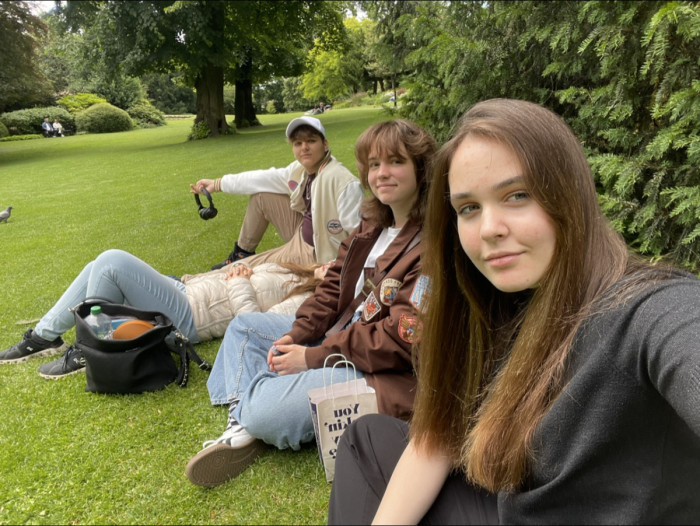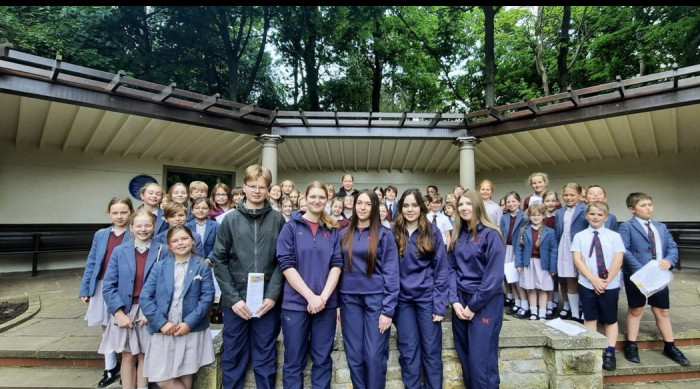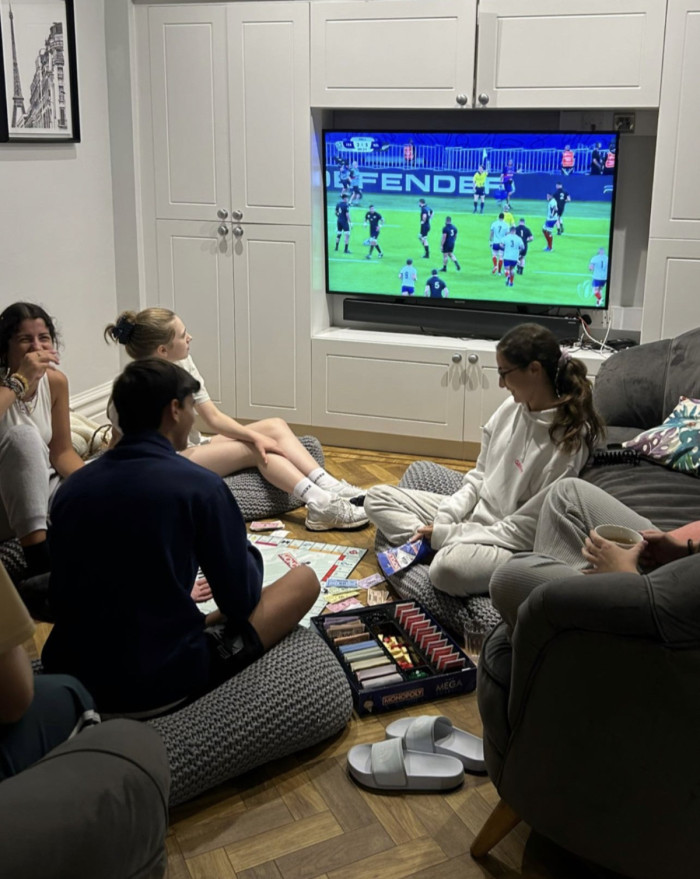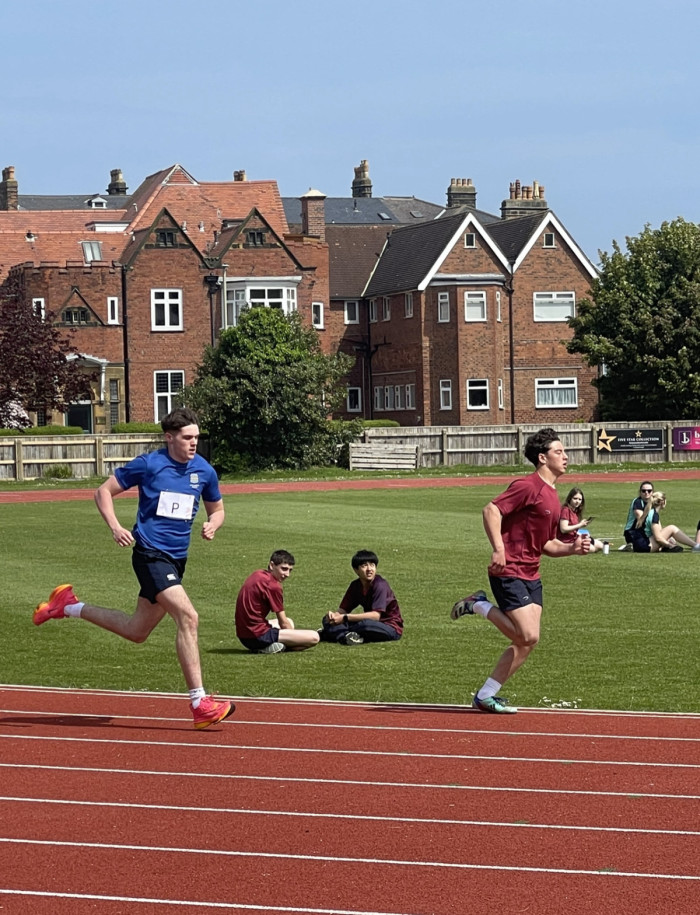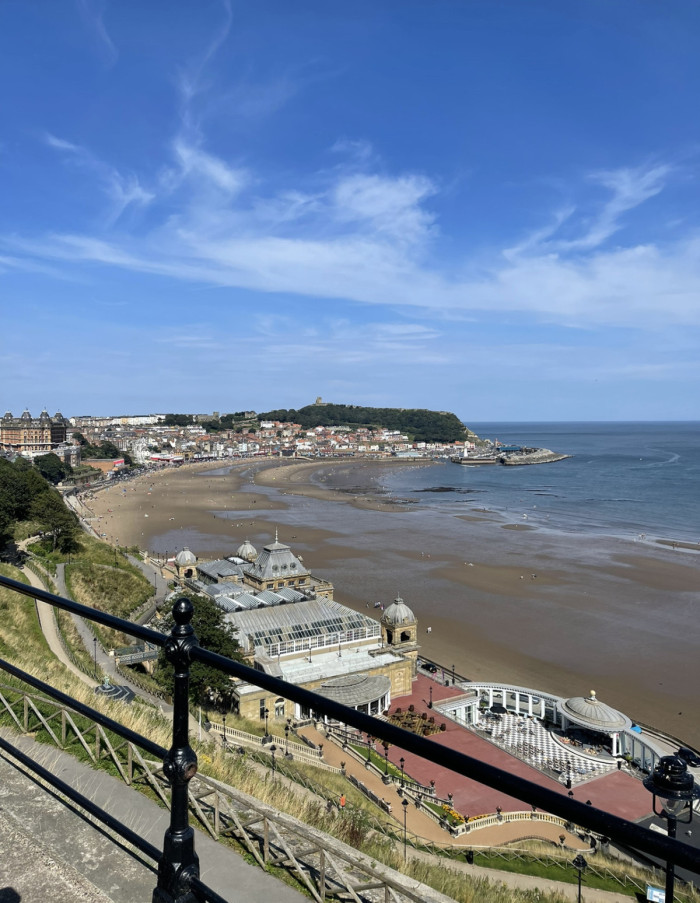Scarborough College. Feedback from a student
28.11.242732
Last year, Katia came to us looking for a school in the UK that would help her get into universities in any country. We recommended several schools with the IB programme and Katia chose Scarborough College. Today she gave us an interview about her studies at this school and why she chose it.
1. What made you choose the IB programme at Scarborough College? How did you choose this school?
I learnt about this school from the Aspect agency. I liked the choice of subjects at Scarborough, as well as the positive feedback from a girl from Ukraine with whom I studied in the past. I learnt from her that IB not only allows you to get an international diploma, but that it was at Scarborough College that particularly diligent and intelligent students got into such top universities as Cambridge, Columbia, Minerva, and so on. I realised that this school would allow me to use my potential to the maximum.
2. Do you feel a difference in the approach to learning compared to your previous educational programmes? What was the biggest discovery for you?
Yes, I feel a very strong difference in the approach of the British and Ukrainians. Here in England, creativity is much more encouraged, the development of critical thinking instead of rote learning, leadership skills, and so on. For me, the biggest discovery was that in England, many more students really want to learn, and you are not considered a ‘rote learner’ like in Ukraine, for your passion and diligence in studying.
3. What subjects did you choose to study at IB and how did you make your choice?
I chose History, English, Art, Spanish, Mathematics and Biology. Here you can choose the subjects that you will want to study at the university level in the future and that you potentially want to choose as your career. I chose History because it develops critical thinking; Art because it develops your knowledge of art and your creativity; English to speak eloquently and clearly and to be understood by all nationalities, because English is the language of the world.
4. Do you have a favourite subject or teacher? What exactly attracts you to their teaching?
I have a favourite teacher. It's our history teacher - I like her both as a person and as a teacher who is strict about our tasks and responsibilities. She explains the subject very clearly and encourages any achievements or extra work I do. We have both a professional and personal relationship outside of school, which allows me to enjoy the subject even more.
5. Tell us about CAS (Creativity, Activity, Service) - what projects or activities have you chosen and what have they given you?
CAS is any activity or extracurricular that students do outside of school. They provided me with not only useful experience (for example, my internship in a Ukrainian company), but also improved my qualities such as organisation, leadership and useful contacts. Not only was I able to become part of my local community, but I was also able to add this to my university application!
6. How do you organise your time to keep up with your studies, additional projects, and leisure? Do you have any special advices?
Yes, I do have one main piece of advice. I would recommend using every free minute of the day to do homework and extra projects, and on weekends, if possible, rest and do nothing, even if you have a test next week. This is the only method that helps me not to burn out mentally, continue to be productive and meet deadlines. I would also advise you not to try to learn everything, as I sometimes did in Ukraine, the night before the exam, but to do a little bit of each subject, but very often. And not only to study, but also to take tests from previous years to train your exam technique. This helped me get the highest scores in many subjects!
7. What was your biggest challenge in the IB programme and how did you overcome it?
The biggest challenge for me was balancing my studies in all six subjects. There were many times when I could concentrate too much on Maths, for example, doing extra homework, studying for a test every night, and miss opportunities to study other subjects, such as Art or Spanish, in more depth. I overcame it by concentrating on two or three subjects one week and the remaining three the next week (not including deadlines). This is the only way I can do my work efficiently and effectively, leaving time for rest and for my additional activities or sports.
8. Has the IB Programme changed your understanding of your future career? What plans do you have after graduation?
After school, I want to study at university, and since the IB is considered to be a very diverse and progressive programme and is respected globally as a basic education, I want to try to apply to universities in several countries.
9. Do you feel supported by your school and teachers? How do they help you achieve success?
Yes, I feel a lot of support for my potential and incredible opportunities. For example, last year, I had the opportunity to give a Ted Talk about the USSR and Ukraine under Stalin, which gave me confidence in my public speaking skills. Also, thanks to our school's educational adviser, I learned about national and international academic and essay competitions, which not only improved my understanding of the subject but also my university application. What I like about this school is that everyone can find something here that helps to develop their potential and improve their strengths, thus achieving success.
10. What advice would you give to students who are just planning to start studying the IB programme?
I would advise you to first complete the 2-year GCSE programme, which is our equivalent of secondary education, or to complete 10 grades of a Ukrainian school, and to start not at the age of 15, but at the age of 16. This is the only way to not only understand all the material that is provided to you, but also to be able to avoid stress, to cope with the load and complexity of the amount of information that is provided to you. And one more piece of advice - don't do this programme if you're not ready to devote almost all your free time to it, and if you don't like to study! Otherwise, this programme provides opportunities for those who try that you've never dreamed of - especially if you study in Ukraine.
